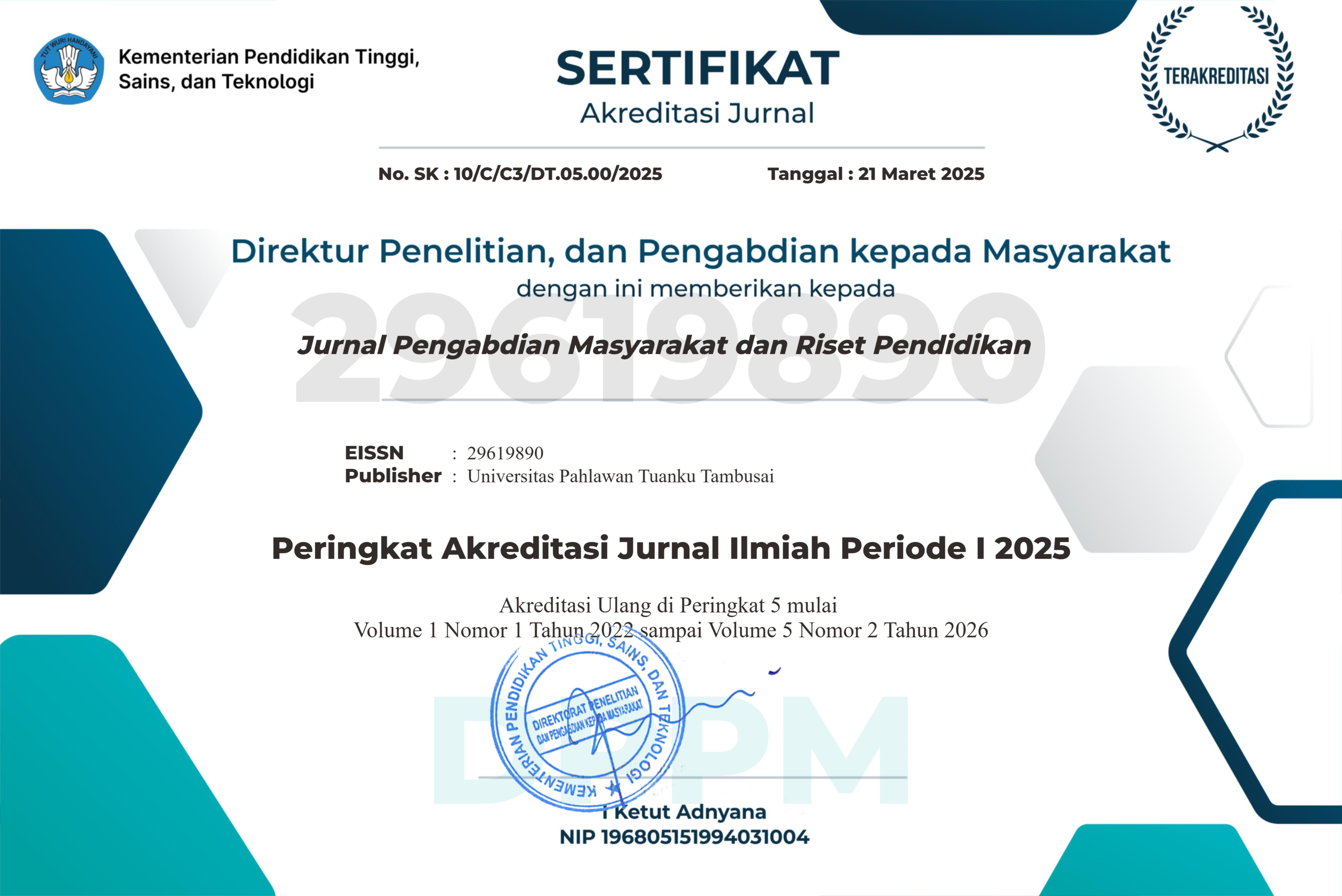Fostering Literacy Culture at SD Negeri Tanah Merah: Success of Educational Seminar and Its Positive Impact on the Community
DOI:
https://doi.org/10.31004/jerkin.v2i3.242Keywords:
Literacy Culture, Community Engagement, Education SeminarAbstract
This community service aims to increase awareness and implementation of literacy culture at Tanah Merah State Elementary School, Aceh Tamiang. By holding a one-day seminar on January 10 2024, this program brings together participants from various parties, including teachers, students and parents, in a united effort to create awareness of the importance of literacy as the main foundation of education. Keynote lectures and interactive discussions in seminars dive deeper into the concept of literacy, which includes not only reading and writing skills but also critical thinking skills, interpretation, and thorough knowledge of various types of texts. This seminar also provides a platform to produce actual action plans, which reflect participants' commitment to integrating literacy culture in everyday life. Evaluation and reflection findings revealed that this activity was successful in providing positive changes in attitudes and understanding, with awards given at the end of the event as appreciation for the participants' commitment. By expressing the conclusions of this service, this abstract shows the success of the initial steps in improving literacy culture at Tanah Merah State Elementary School. This aims to ensure that the enthusiasm and understanding that emerges from this activity can become a catalyst for sustainable change at the school level and in the local community.
References
Chen, J. (2021). Discrimination of the Contextual Features of Top Performers in Scientific Literacy Using a Machine Learning Approach. Research in Science Education, 51, 129–158. https://doi.org/10.1007/s11165-019-9835-y
Gerde, H. K. (2018). Early Childhood Educators’ Self-Efficacy in Science, Math, and Literacy Instruction and Science Practice in the Classroom. Early Education and Development, 29(1), 70–90. https://doi.org/10.1080/10409289.2017.1360127
Han, Y. (2020). The development of student feedback literacy: the influences of teacher feedback on peer feedback. Assessment and Evaluation in Higher Education, 45(5), 680–696. https://doi.org/10.1080/02602938.2019.1689545
Prayuda, M. S., Juliana, J., Ambarwati, N. F., Ginting, F. Y. A., & Gultom, C. R. (2023). Students’ Writing Error in Parts of Speech: A Case Study of EFL Students. Jurnal Educatio FKIP UNMA, 9(2), 659–665. https://doi.org/10.31949/EDUCATIO.V9I2.4419
Prayuda, M. S., Silalahi, T. S. M., & Almanda, F. Y. (2022). TRANSLATION OF THEMATIC STRUCTURE OF DESCRIPTIVE TEXT FROM INDONESIAN INTO ENGLISH. Pendidikan Bahasa Indonesia Dan Sastra (Pendistra), 148–151. http://ejournal.ust.ac.id/index.php/PENDISTRA/article/view/2365
Sum, K. W. R. (2018). Effects of physical education continuing professional development on teachers’ physical literacy and self-efficacy and students’ learning outcomes. International Journal of Educational Research, 88, 1–8. https://doi.org/10.1016/j.ijer.2018.01.001
Downloads
Published
How to Cite
Issue
Section
License
Copyright (c) 2024 Afrida Erayani, Ester Julinda Simarmata, Rosdiana Samosir

This work is licensed under a Creative Commons Attribution-ShareAlike 4.0 International License.















